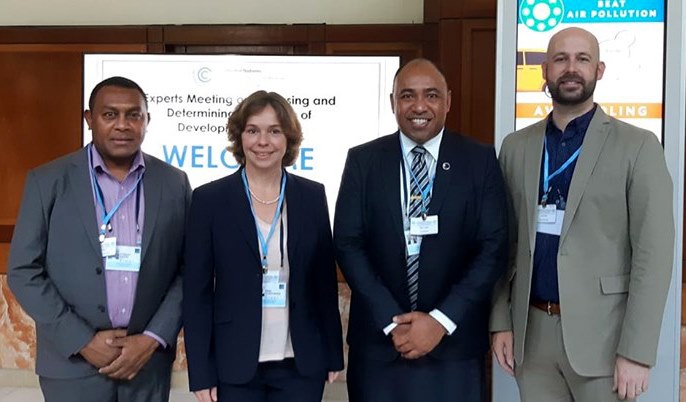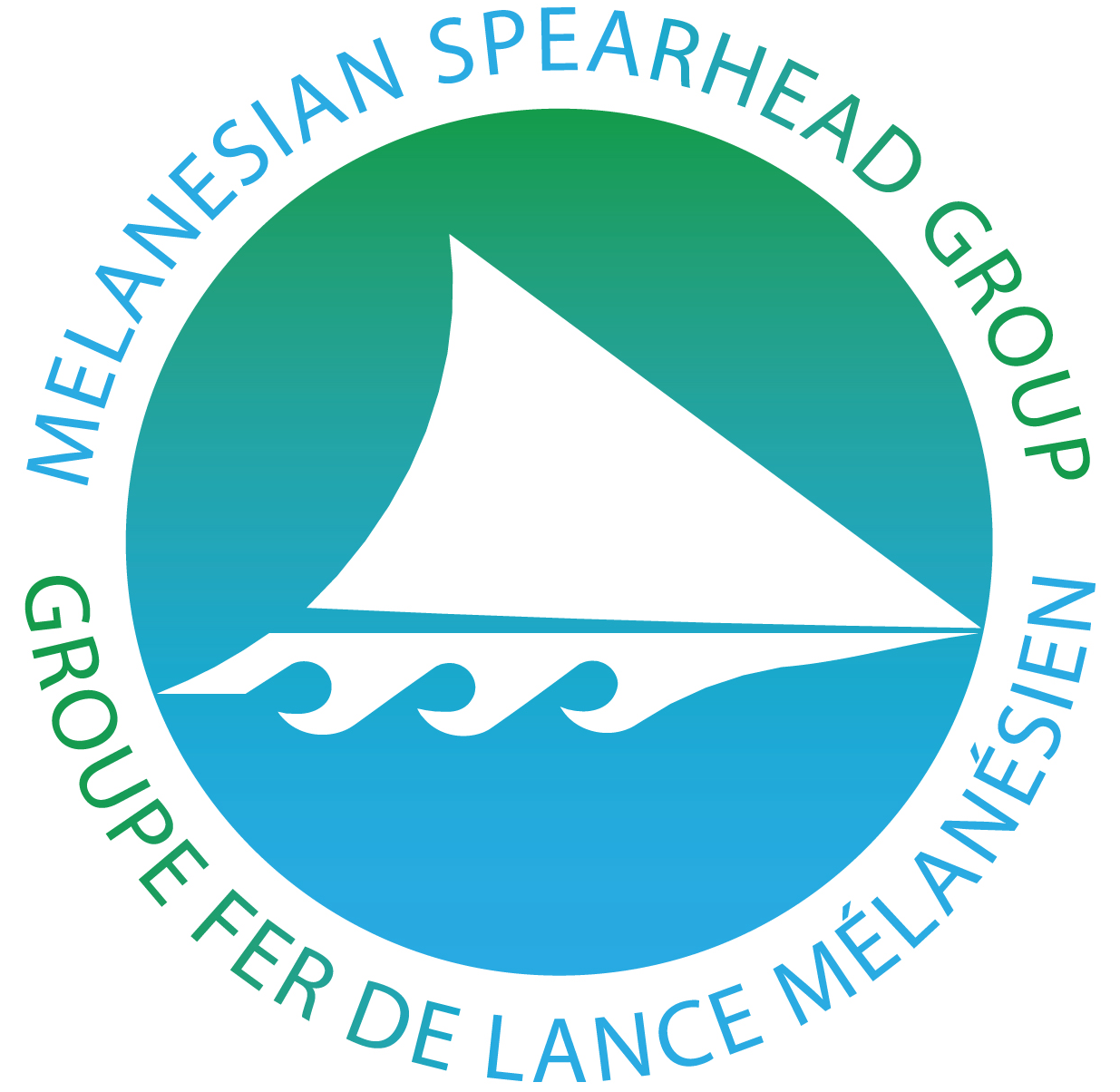MSG Climate Finance Strategy taking further shape

Mr. Stanley Wapot with Ms. Irina Scheffmann, GIZ Country Director for Philippines and Pacific Islands, Mr. Ledua Vakaloloma, PIFS Finance Advisor and Mr. Corey Fortin, Green Climate Fund Advisor at the UNFCCC-ADB Climate Finance meeting at ADB Headquarters.
15 July 2019
Participants at the Experts meeting on Assessing and Determining the Needs of Developing Countries for Climate Finance at the ADB headquarters, Mandaluyong, Metro Manila, Philippines were presented the MSG Climate Finance Strategy 2019 – 2021 paper by Mr. Stanley Wapot, Program Manager Sustainable Development for the MSG Secretariat on 11 July 2019. The MSG Climate Finance Strategy 2019 – 2021 is a sub-regional climate action and finance policy framework in the “Session on Translating climate finance needs into action – Strategies for translating needs.”
During his presentation, Mr. Wapot explained that the MSG Members identified 6 Strategic Areas and Activities for implementation. On Strategic Area 3 Building on Existing Financing Mechanisms, the UNFCCC Mitigation and Carbon Finance Team is already working with the MSG Secretariat to support the MSG country projects targeted at the carbon markets and geared towards the new Paris Agreement direction in article 6.2 on Cooperative Approaches that involve the use of Internationally Transferred Mitigation Outcomes towards Nationally Determined Contributions (NDCs) and article 6.4 on Mitigation and Sustainable development under the Sustainable Development Mechanism (SDM) which replaces the Kyoto Protocol CDM after 2020.
In addition, Mr. Wapot stated that Capacity Building and Institutional Strengthening in Strategic Areas 5 and 6, the focus is on strengthening the capacity of the MSG Secretariat for sub-regional coordination and technical back stopping to support the Members and for the countries to integrate climate risks, and related finances into their national fiscal structures for long term low-carbon and green growth development planning and implementation closely linked to their public finance management systems (PFMS). The MSG Secretariat will collaborate with various international partners with the know-how to support the members in implementation.
Other innovative financial options such as debt (e.g pooled bond for the subregion) and de-risking instruments are being considered to mobilise public and private finances within and outside of the MSG apart from the financial mechanisms of the Multilateral Environmental Agreements (MEAs) such as the Global Environment Facility (GEF), Adaptation Fund and the Green Climate Fund and bilaterals & multilaterals for MSG projects and programmes.
The MSG Climate Finance Strategy is a catalyst for greater cooperation focused on the commonalities of the Melanesian sub-region such as the vast land, water and forests and marine resources amongst others.
The event was organized by the United Nations Framework Convention on Climate Change (UNFCCC) secretariat with the support of the Asian Development Bank and Governments of the Republic of the Philippines and the Republic of Korea and was held over two days.
